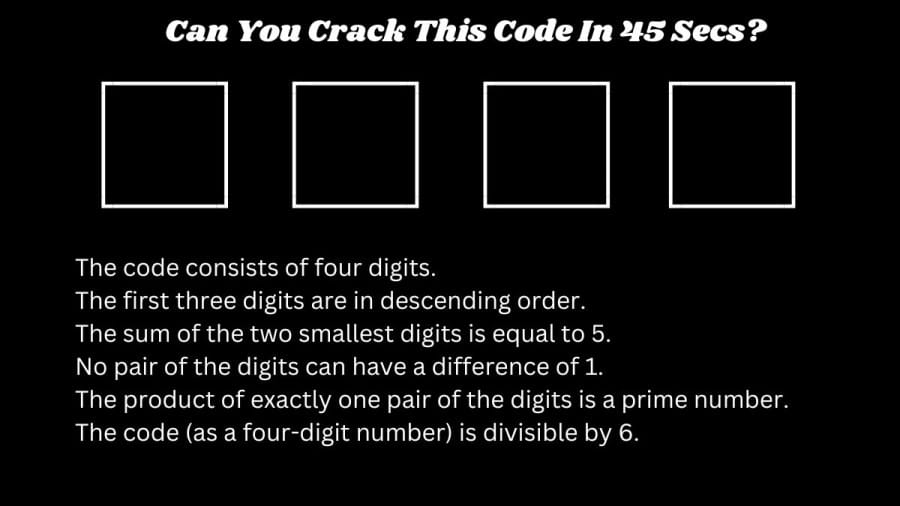brain teasers
A puzzle that requires thinking and solving is also called a “brain teaser.” In fact, a brainteaser is an exercise, question, or puzzle that uniquely enhances thinking skills.
- Observation Brain Challenge: If you have Eagle Eyes Find the number 200 among 280 in 12 Secs
- Brain Teaser Eye Test: How Fast Can You Locate the Odd One Out?
- Brain Teaser: Find the Number that should replace the question mark
- 5-5=6 Move 1 Stick and Right the Equation in this Brain Teaser Matchstick Puzzle
- Brain Teaser Only Genius Can Solve – Can You Find The Missing Number And Solve This Maths Puzzle?
Therefore, brain teasers can be considered a complete brain exercise for children and adults as they are supposed to engage both the left and right brains. The right half of the brain controls creativity, emotion, and intuitive thinking, while the left side of the brain is analytical, systematic, and objective.
You are watching: Brain Teaser Logical Puzzle For Test Your IQ: Can You Crack This Code In 45 Secs?
Nowadays, people are increasingly interested in solving brainteasers. We have come up with some brain teasers, one of which is given in this article.
Brainteaser logic puzzles to test your IQ
Math puzzles are one of the important aspects that increase and stimulate our brain thinking and increase our mathematical knowledge. Math puzzles require math skills to solve, and logic puzzles are a common type of math puzzle.
Although it can be a tricky puzzle, the solver must find a solution that satisfies the given conditions to solve such puzzles. These mathematical puzzles are considered difficult even though the solver only interacts with them at the beginning by providing a set of initial conditions.
trend
Can you crack this password in 45 seconds?
Today we bring you a new brainteaser to test your IQ. Take a look at the image below and try to crack this password in 45 seconds?

Look carefully at the image and try to analyze the equation:
The code consists of four digits.
The first three digits are in descending order.
The sum of the smallest two numbers equals 5.
The difference between any pair of numbers cannot be 1.
The product of exactly a pair of numbers is a prime number.
See more : Brain Teaser Matchstick Puzzle: Move 2 Matchsticks to make the Equation 7+4=5 Right
This code (four digits) is divisible by 6.
Can you crack this password in 45 seconds? – solution
the answer is,
My previous logic for calling 9714 was:
If the product is a prime number, it means that one of the digits is 1.
The second smallest number is 4 (2 adds the smallest number to 5)
The only single-digit prime numbers are 2, 3, 5, and 7. The first 3 are less than or adjacent to 4, so 7 is a number.
We need a fourth digit, 8 is next to 7, so it must be 9.
The only combinations of decreasing numbers in the first 3 positions of 1, 4, 7 and 9 are 9741, 9714 or 7419. Only 9714 is divisible by 6.
Disclaimer: The above information is for general information purposes only. All information on this website is provided in good faith, but we make no representations or warranties, express or implied, as to the accuracy, adequacy, validity, reliability, availability or completeness of any information on this website.
Source: https://truongnguyenbinhkhiem.edu.vn
Category: Brain Teaser
